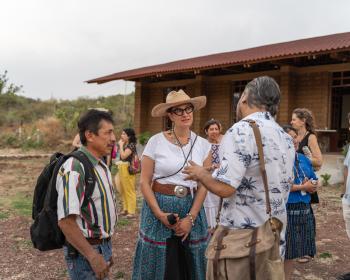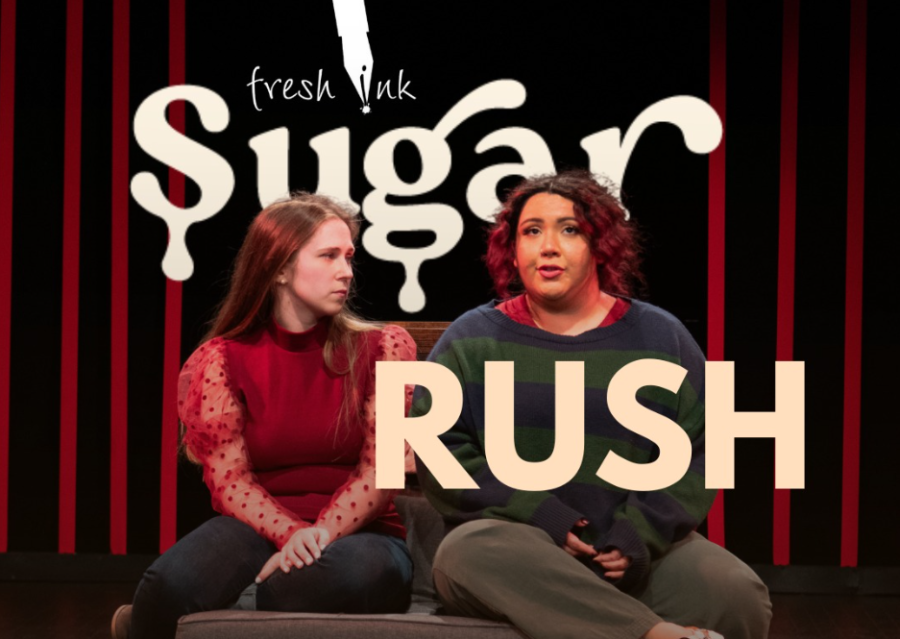
By Phoebe Farris (Powhatan-Pamunkey)
The Pocahontas Reframed Film Festival held its annual celebration of Indigenous film in Richmond, Virginia, from November 17-19, 2023, amplifying the contributions of Native Americans, First Nations, and Indigenous Peoples around the globe in local, independent, nonprofit, and commercial film. Its films, panel discussions, and Q&As showcased stories and stimulated deep conversations that are at once relevant to specific Indigenous lives and all of humanity.
Documentaries, animation, horror, science fiction, and action thrillers were some of the genres represented at the festival, with films spanning Indigenous experiences of past, present, and future. Among the films screened were: “Rabbit Stories” (2023), starring Cherokee actor Wes Studi; “American Masters:Zitka’la-SA: Trailblazing American Indian Composer and Writer” (2020); “Abandoned: Angelique’s Isle” (2017); “The Man Beside the Mask” (2000); “Native America - Episode One” (2023); “Pocahontas: The Real Story” (2021), directed and produced by Vincent Schilling (Akwesasne Mohawk); “Gakaabikaang: Indigenous Voices in the Twin Cities Riots of 2020 and 2022 by journalist Darren Thompson (Ojibwe/Tohono O’ddham); “7th Generation” (2017), produced by Jim Warne (Oglala Lakota); “Remember the Children” (2022), also by Warne; and “A’nimas (Spirits)” (2023), directed by Federico Cuatlacuatl.
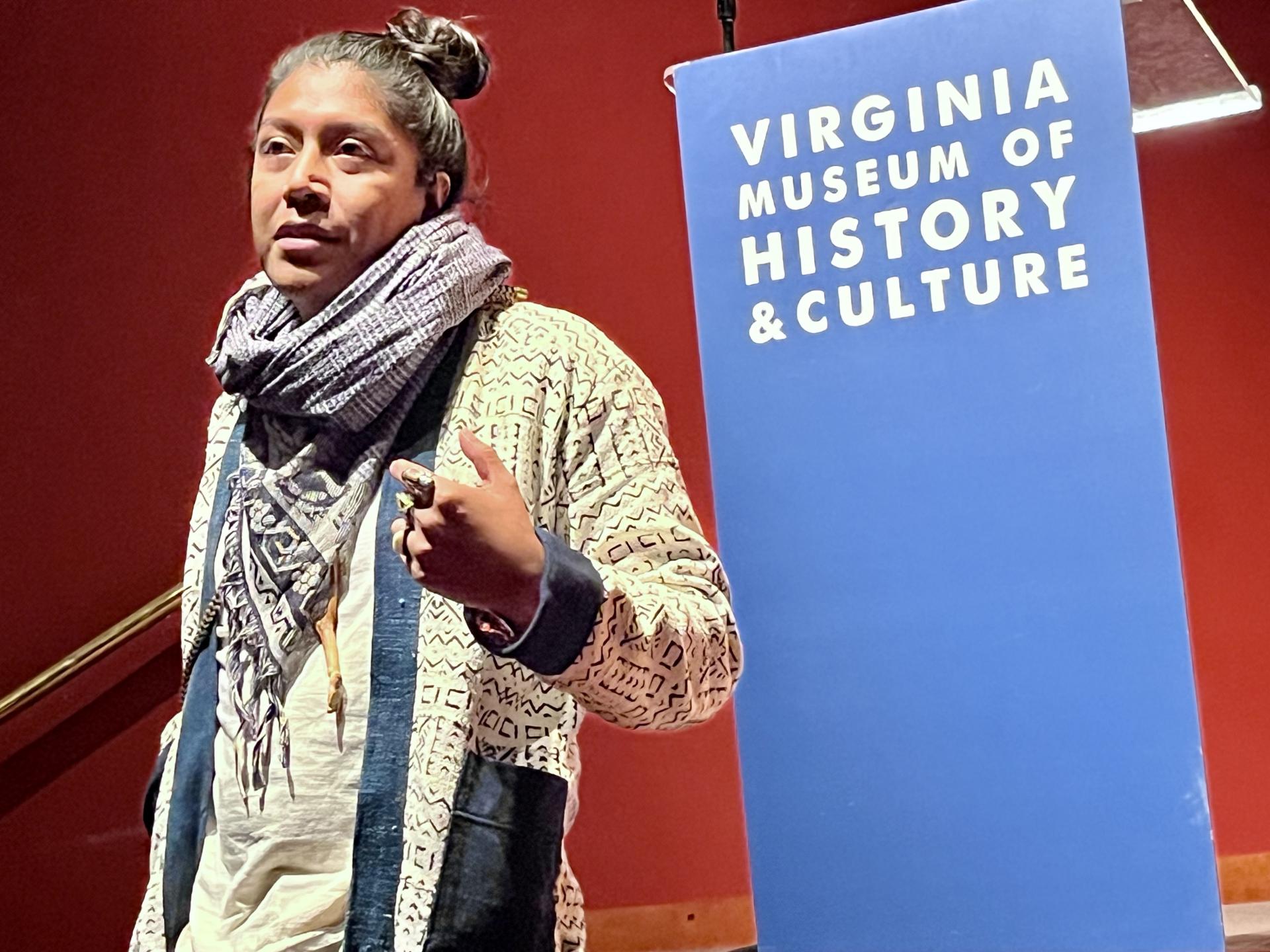
Federico Cuatlacuatl
The theme of “walking in two worlds” spanned several of the films. This term usually refers to persons of mixed Indigenous and European ancestry, but here the films focused on issues of identity for Indigenous people of mixed Native American and First Nations ancestry whose parentage included one parent who was Indigenous and another who was a person of color but not Indigenous to the Americas. For example, the 2023 documentary “Warrior Up” follows 17-year-old Talon Pascal from the L’ilwat First Nation in British Columbia, Canada. An expert in making arrowheads, flintknapping, hunting on horseback, archery, and building pit houses, Pascal lives with his First Nations father and Japanese mother. The film highlights Pascal’s mixed heritage and his embrace of the two cultures.
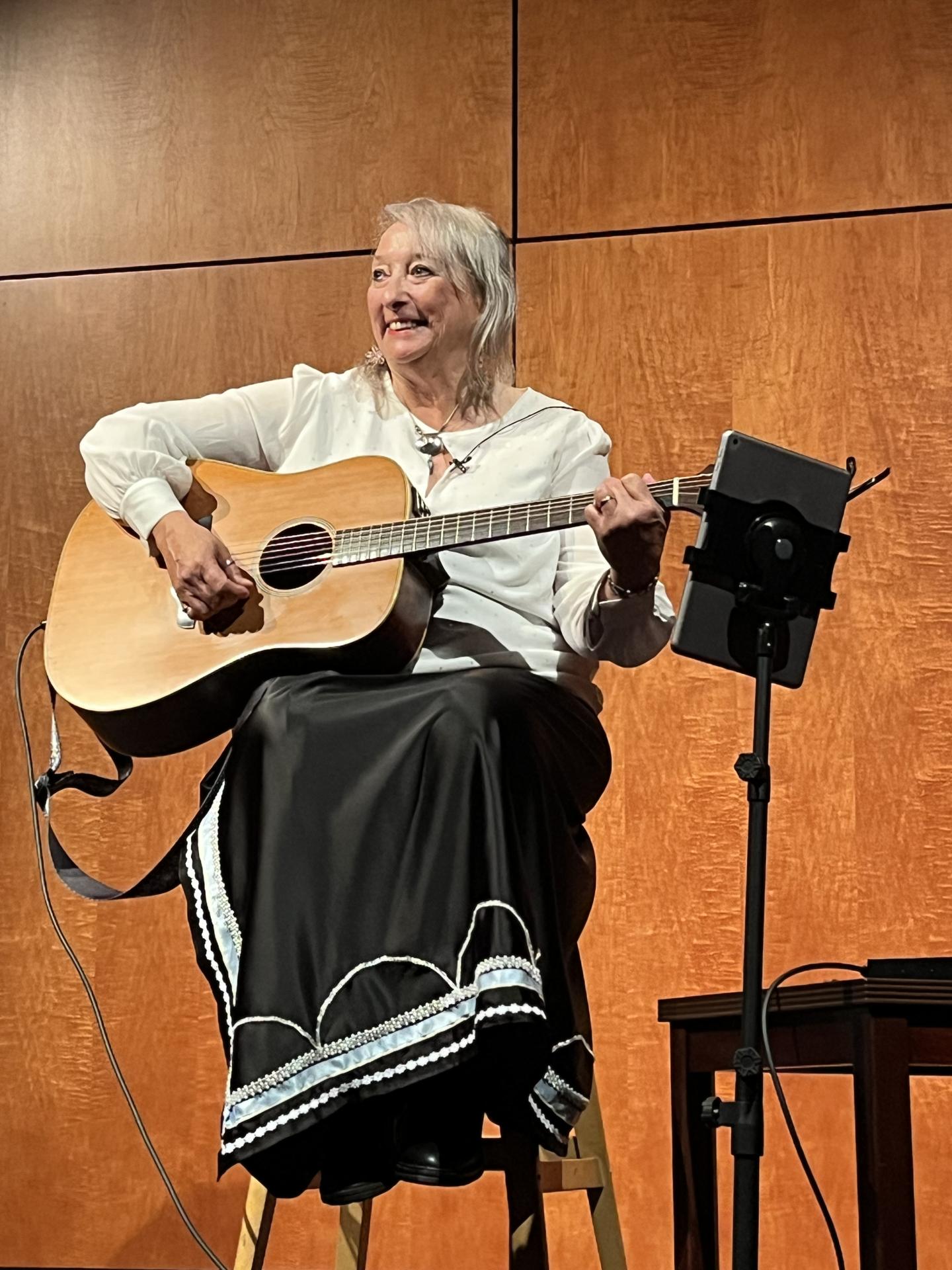
Elizabeth Hill (Mohawk) singer and composer.
“Gift of Fear” (2023), produced, written, and directed by Jack Kohler (Hoopa), does not overtly address the complexities of race or mixed identity. Instead, the film references it visually with a cast of Native American actors who have skin tones spanning white to dark brown and hair ranging from straight to curly. The film is a fictionalized account based on the real experiences of young Indigenous women who have become victims of sex trafficking and physical abuse, witnesses to murders or murder victims themselves, and those who have disappeared. These issues are seen through the teenage protagonist, who is trying to build a new life after witnessing her mother’s murder and being trapped in a gang.
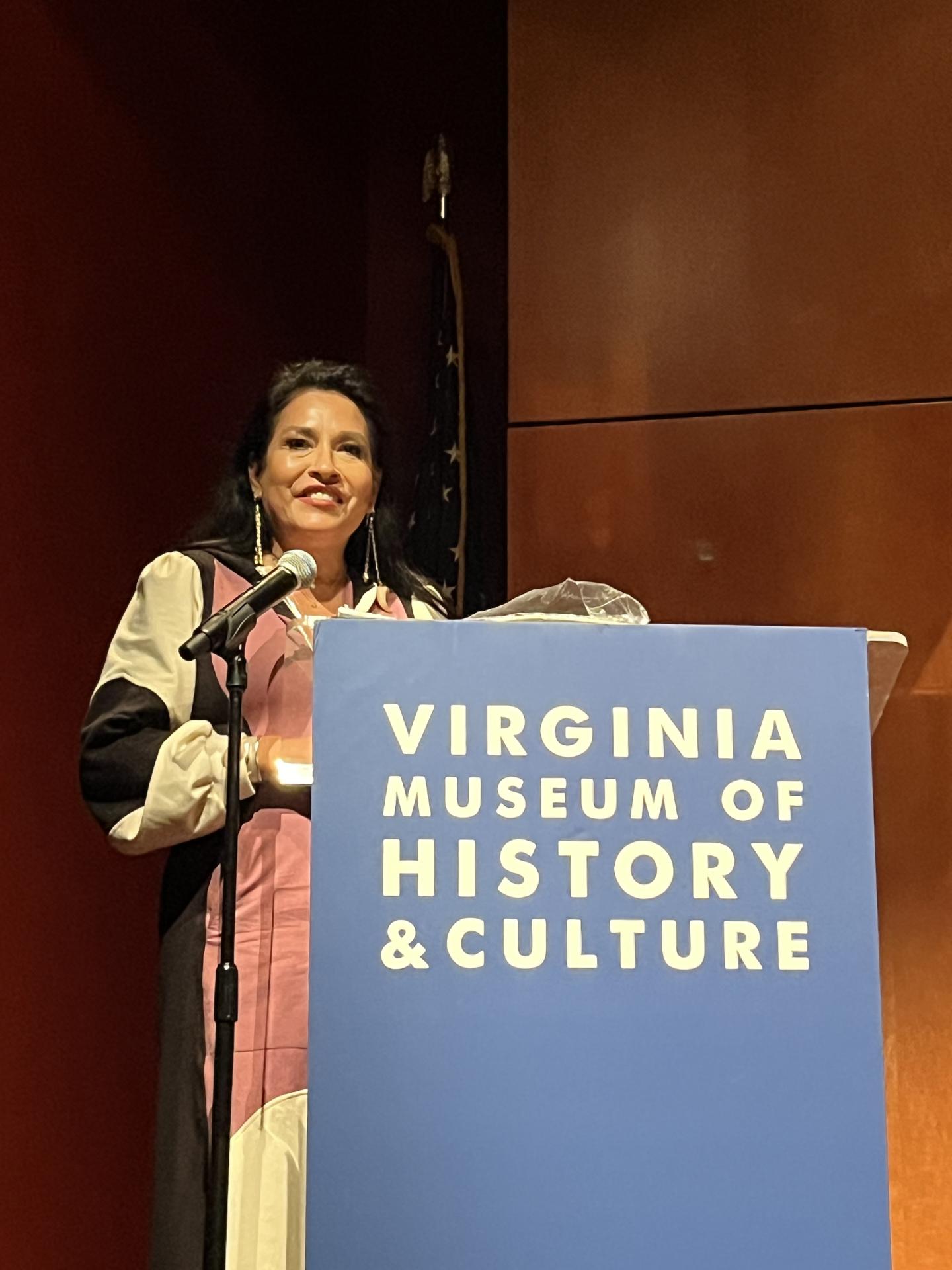
Jhane Myers (Comanche), producer of the featured film “ Prey”, the first Native centered film in the “Predator” franchise film series.
“The Weight,” a tribute to musician Robbie Robertson (Mohawk/Cayuga), 1943-2023, produced by Playing for Change, kicked off opening night with a bang. Featuring former Beatles drummer Ringo Starr along with Robertson, an original member of The Band, musicians from Nepal, Argentina, Bahrain, the Congo, Spain, Italy, Japan, and Hawai’i played their interpretations of Robertson’s music using traditional instruments from their cultures. The short film “Black Indians: We Are All Connected” (2021), written, directed, and produced by Shilling, included brief interviews with Harold Caldwell, a traditional dancer of Gros Ventre, Muskogee, and Black heritage, and Dr. Arica Coleman, who is Rappahannock and Black, at a powwow. Both were dressed in powwow regalia. Dr. Coleman is a professor of Black American Studies at the University of Delaware and the author of the book, “That the Blood Stay Pure: African Americans, Native Americans, and the Predicament of Race and Identity in Virginia.” It was surprising that none of the questions directed at Coleman mentioned her book, which is widely read in academia, and instead focused on her hair; a serious topic researched by a serious woman scholar was reduced to comments about her appearance.
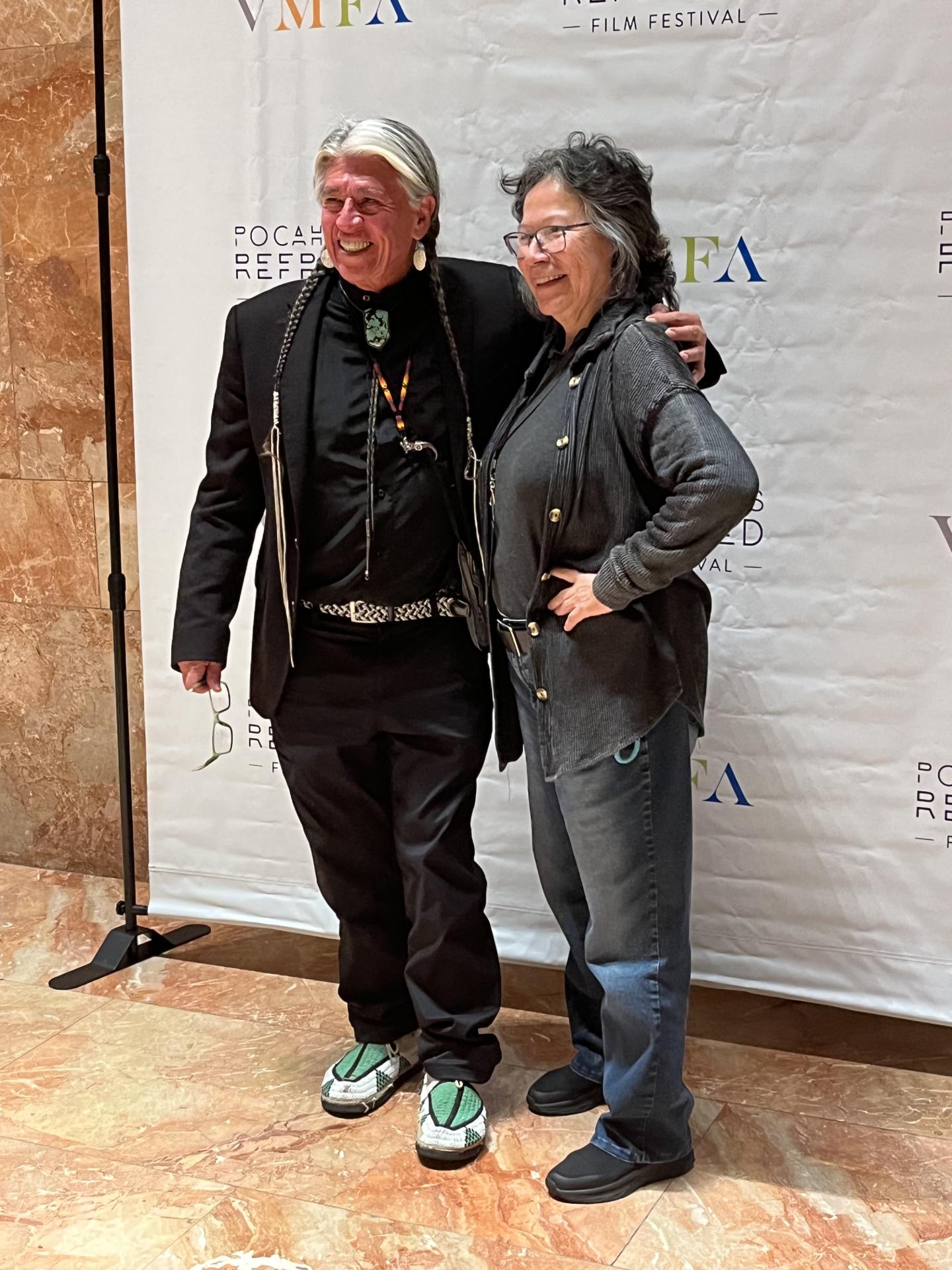
L-R: Sam Bearpaw (Apache) and filmmaker Shelley Niro (Mohawk), film festival board of directors members.
Renowned writer, producer, and director Shelley Niro (Mohawk) presented “Cafe Daughter” (2023), inspired by true events in the 1950s-60s concerning a young girl named Yvette Wong, who is of mixed Chinese and Cree heritage. As a child, Wong and her brother don’t fully understand why their Cree mother discourages them from identifying as part Cree and restricts their visits to their relatives who live on a reservation. Although the family faces racial discrimination and violence as Chinese-Canadian restaurant owners, their maternal Cree family is threatened with even more dire potential consequences due to Canadian laws impacting families living on reservations. The actual name of the girl that Niro, and Kenneth T. Williams, whose play inspired Niro’s film, is Lillian Dyck, a retired Canadian senator, neuroscientist, and advocate for Indigenous women who became the first woman First Nations senator in Canada and the first Canadian-born Chinese senator. “Cafe Daughter” is inspiring because of the strong acting of the cast and the achievements and success of both the fictional Wong and the real-life Dyck, whose picture appears at the end of the film. The film also highlighted how people of various non-European Canadian heritage were discriminated against and faced a hierarchy of acceptance and/or rejection by the Canadian government.
Warne (Oglala Lakota), educator, motivational speaker, retired professional athlete, and producer of “7th Generation” (2017), presented his film and regaled the audience with tales of his life story and personal reflections on what it takes to be a grounded human being involved in one’s community and also helping youth that will lead the next generations. His film features Lakota Elders and community members in various settings, such as a preschool Lakota language immersion class and awards ceremonies. Issues of mixed identity, Tribal enrollment, and race are not overtly discussed; rather, similar to Kohler, Warne visually captures the beauty and diversity of 21st-century Indigenous people. As four beautifully attired Lakota young women sing in the Lakota language outside on the plains, viewers can appreciate their voices of pride and envision the future for the seventh generation.

Filmmakers and guests at the VIP closing reception. L-R: Bradby Brown, Xeneca Leclair, Sam Bearpaw, Frederico Cuatlacuatl, Jack Kohler, Jim Warne.
“Indigeneity Beyond the Southern Border” featured two films presented or directed by Cuatlacuatl, founder and director of the Rasquache Artist Residency in Puebla, Mexico. “Pobo Tzu” (2021), focuses on the 1982 Chichonal volcanic eruption and its impact on the Zoque community of Esquipulas Guayabal. Beneath the buried towns, the residents of Nueva Guayabal contemplate the bones and the precious gold and silver sacred artifacts of the Catholic Church buried in ash below. “Pobo Tzu” references a different kind of ethnic mixture, one of religion and spirituality. The Zoque community continued to practice some of their traditional ceremonies while also embracing the religion of their colonizers, the Roman Catholic Church. Often, conflicts emerge between those who feel more connected to Piowachue (the spirit of the volcano) and those more invested in a Christian worldview.
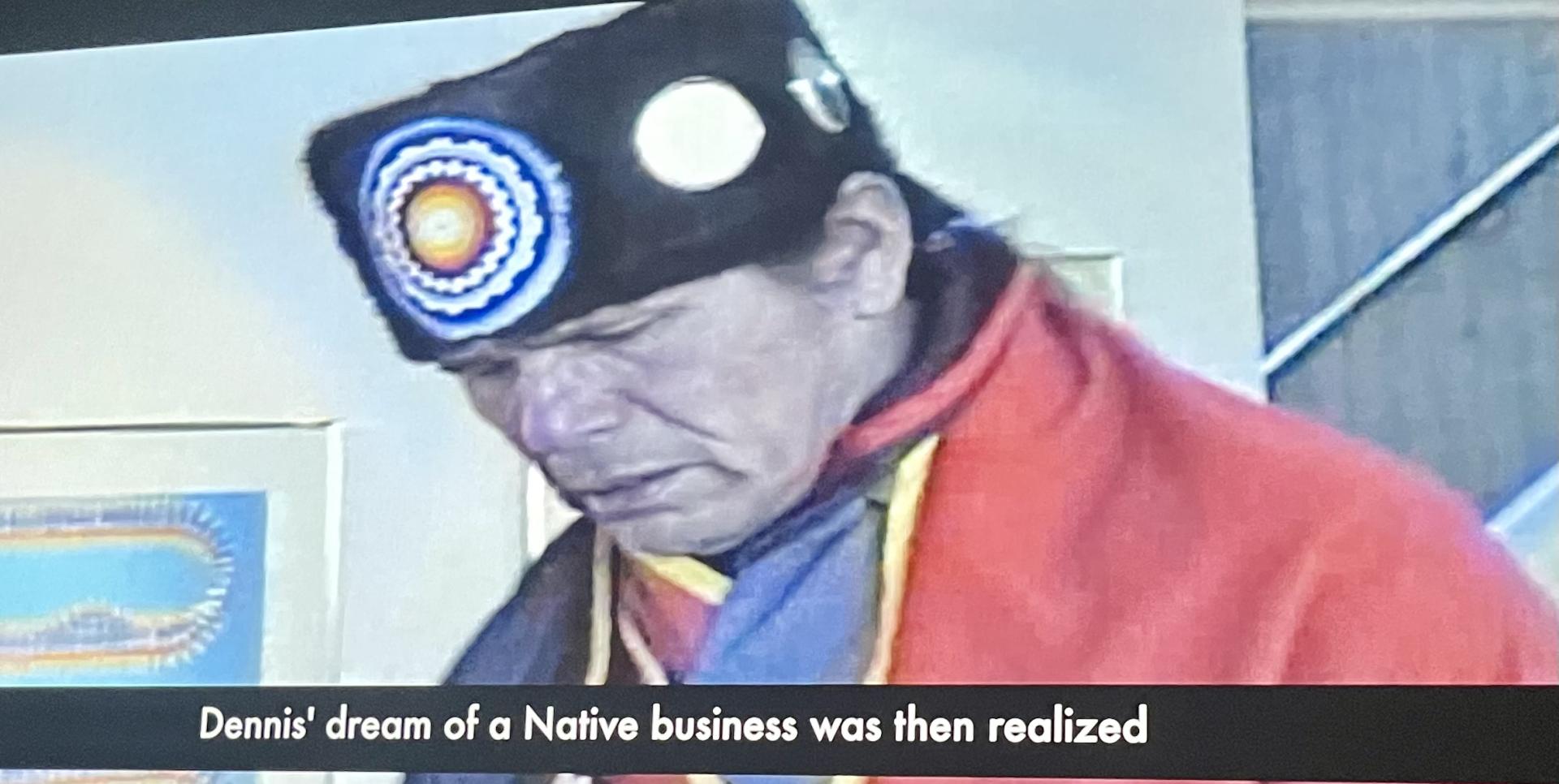
Actor Michael Horse (Yaqui) narrates the life of Dennis Banks, a.k.a. Nowa Cumig, in the riveting documentary, “Ojibwa Warrior” (2023), which chronicles Banks’ life as one of the founding members of the American Indian Movement. The film elicits memories of an era that saw Black, Red, and Brown Power movements take center stage in the U.S. and around the world. “Ojibwa Warrior” takes viewers into aspects of Banks’ life beyond his better-known AIM activism and into a more nuanced understanding of a man who was sensitive, reflective, spiritual, and became immersed in cultures outside of Native American beliefs, such as those of Japan. Banks was stationed in Japan after World War II, where he learned the language and fell in love with the country, along with a Japanese woman named Michiko. They married, even though Banks’ military position made it an illegal act. He was court-martialed, sent home, and not allowed to bring his pregnant wife with him. The film discusses his reluctance to follow military orders to shoot and kill Buddhist protesters who were angry at the U.S. military for taking Japanese farmlands. Banks said these Japanese protests were his first experiences witnessing Indigenous resistance.
These revelations, new to most viewers, gave us a deeper understanding of some of the life events that would later influence Banks’ activism of the 1960s and 70s with fellow AIM leaders Clyde Bellecourt and Russell Means. The film has footage of Banks with the late Harry Belafonte, who later met with AIM activists at the second Longest Walk and introduced them to Representative John Conyers outside the Capitol building. Later in his life, Banks’ love of Japanese culture led to business partnerships with Masao and Hiroko Yamamoto and the export of American Indian foods. Banks also founded the Nowa Cumig Institute, which sponsored educational seminars.
Although the taking of Alcatraz, the Custer Riots, and the Bureau of Indian Affairs takeover should not be minimized, Banks’ life encompassed more than that. As Horse explained during the Q&A following the film, people tried to vilify the Black Panthers and AIM. However, the organizations were not started to promote violence. They protected people in the streets, fed people, and helped them get off drugs. Horse stated, ”Dennis Banks was an example of what you do as a warrior.” Referencing another AIM activist, Horse stated, “Leonard Peltier is still in prison—one of the greatest injustices in America.”
--Phoebe Mills Farris, Ph.D. (Powhatan-Pamunkey) is a Purdue University Professor Emerita, photographer, and freelance art critic.

L-R: Filmmaker and actor Jim Warne (Oglala Lakota), Festival Director Bradby Brown (Pamunkey) and Festival Board Member and MC Chief Lynette Allston (Nottoway).
